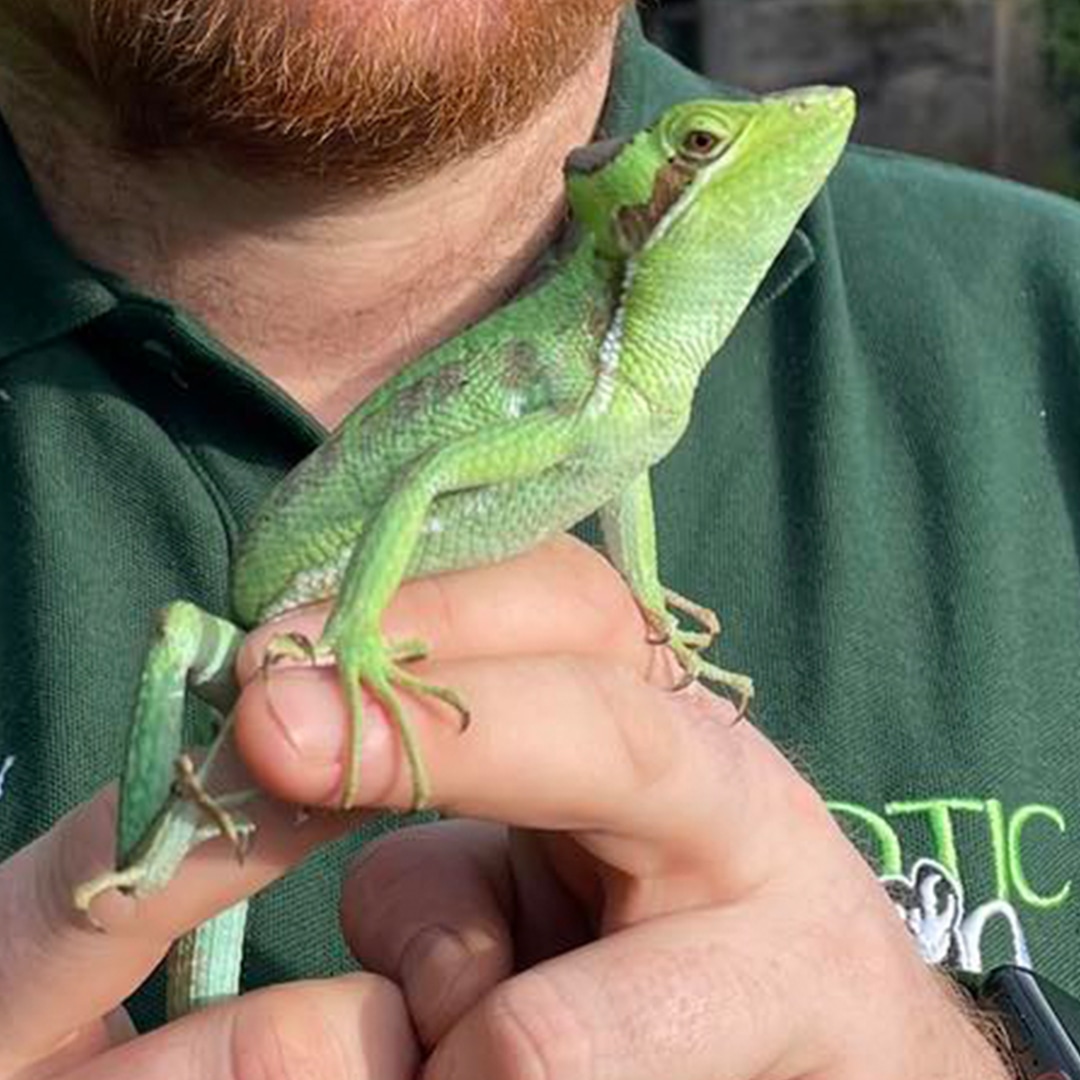One iguana is putting a new spin on the concept of independence.
Exotic Zoo Wildlife Park in Telford, England, shared that one of their casque-head iguanas has achieved a once-in-a-lifetime feat: she’s given birth to eight hatchlings without any male contact in a form of asexual reproduction.
Allow Exotic Zoo to explain.
“These babies are EXTRA special,” the organization wrote in an Aug. 14 social media post announcing the babies’ birth. “These little lizards have no dad at all – they’re being born through parthenogenesis! This means the babies are genetic clones of their mum – an amazing rare natural phenomenon that occurs in some reptiles, invertebrates and other animals!”
While parthenogenesis—sometimes referred to as a “virgin birth” in which unfertilized eggs develop into embryos, creating genetic replicas of the mother—is common among many plants and invertebrates such as ants and bees, the phenomenon occurring among vertebrates is much rarer.
As zoo owner Scott Adams told the BBC Sept. 9, “When we confirmed the eggs were fertile without any contact with a male, our jaws hit the floor.”
“We were quite surprised when our long-term resident decided to lay some eggs,” he added. “We thought we’ll pop them in the incubator. They stayed looking quite white, quite healthy.”
Then, he shared, a couple months later they had eight tiny lizards on their hands.
“They’re all females, they’re all pretty much clones of mum,” he said, before quipping, “They all speak at exactly the same time.”
And in reference to Jurassic Park, Scott noted, “For us, it’s a powerful reminder that life finds a way in the most unexpected circumstances. This is one of the rarest events in the animal kingdom.”
When it comes to this casque-head iguana—which are a species native to Central and South America—giving birth, the zoo shared it’s one of the few documented cases of parthenogenesis occurring in zoos worldwide.
Not only is the occurrence exciting for Exotic Zoo staff, but they’re also hopeful the phenomenon will bring in more visitors.
“This story gives us an amazing opportunity to talk with our visitors about genetics, evolution, and the challenges that reptiles face in the wild,” Scott said. “It’s not just exciting, it’s important for science and conservation education too.”





